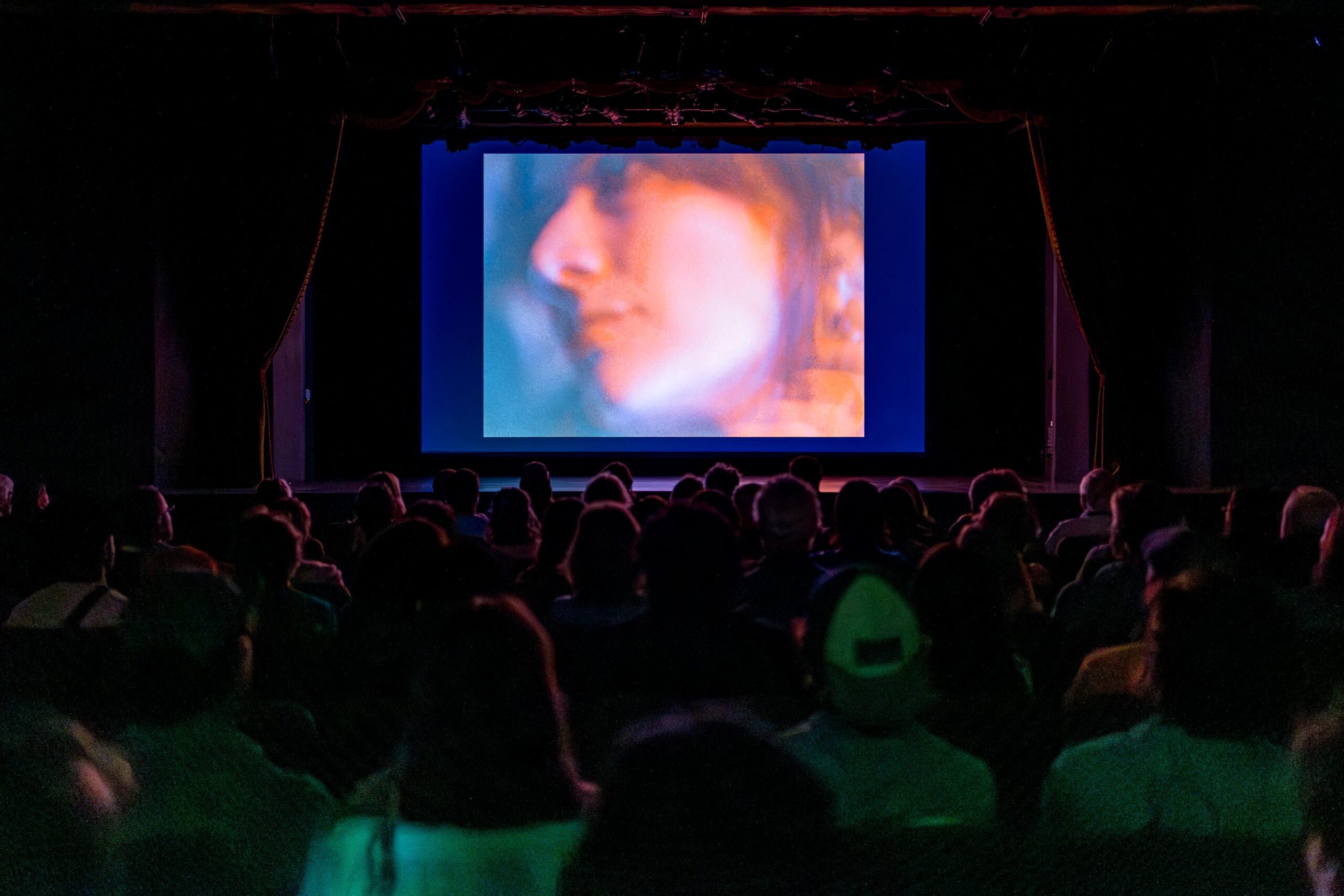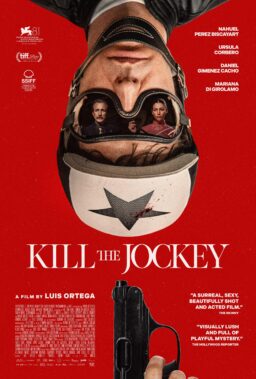Film festivals are good for the soul. While the big ones like TIFF and Sundance can sometimes feel a bit like money machines, the little ones give oxygen to art. Even one where the altitude is high enough that there’s less of it in the air.
In June 2024, the fifth annual Ouray Film Festival unfolded, and I was an invited guest to host a Director’s Spotlight conversation with Bernardo Britto, the director of phenomenal shorts like “Hudson Geese,” “Yearbook,” and “Glove,” along with the upcoming “Omni Loop,” starring Mary-Louise Parker and Ayo Edebiri. With that being the closing night event, I was allowed to soak in the atmosphere of Ouray beforehand, see some truly excellent short films, and truly appreciate the environment that co-directors Jared LaCroix and Jake Abell have developed here. As LaCroix says, it’s a festival about “belonging, being celebrated, being taken care of, and forming genuine friendship with your peers, all in what we think is the most stunning town in the United States.”
The programming this year was strong, and I’ll get to a couple of shorts you need to see, but the main thing I took away from Ouray was what drives the co-founders: a sense of community, trying to reclaim what’s been lost in years of Zoom meetings and detached online interactions. Conversations didn’t just sprout up about what had just been screened but what people were working on and possibly even future collaborations. (Two well-known directors left the fest insisting they would work on a film together.) As Abell says, “It was thrilling to see such powerful relationships form between seasoned filmmakers and newcomers over the course of four days.” And Ouray set up panels to foster this sense of encouragement, including a phenomenal one featuring Chicago producer James Choi (“Saint Frances”) and Chicago filmmaker Linh Tran (whose “Waiting for the Light to Change” had its local premiere at the Chicago Critics Film Festival last year).

The bulk of the program consists of short films, which inherently helps foster the sense of future building as producers like Choi and the lovely Ben Wiessner (“Thunder Road“) would offer advice to short filmmakers on how to get their films seen and future projects made. LaCroix clarifies that the emphasis on shorts is a way to get more people to the fest – more directors per shorts program than a feature – but also that the tie is because LaCroix and Abell are short filmmakers themselves. They were seeking an encouraging environment they weren’t getting on their own fest circuit runs. “Like us, so many filmmakers’ introduction to filmmaking is through short films, and there’s a magic that comes with breaking into an art form,” LaCroix says. “There’s a lot of “beginner’s mind” and openness in short films, which often translates to open and curious people (who are fun to be around).”
One of the most powerful events of the fest was a full shorts program dedicated to films about the conflict in Ukraine. Last year, Ouray hosted a short by Ukrainian filmmaker Maria Pankova called “Breathing,” and she returned this year with the deeply effective “The Sound of the Wind,” a documentary about a Ukrainian woman living in Scotland that won an award for its striking cinematography. This block also included one of the best shorts I’ve ever seen in Max Rykov’s “Hindsight,” which co-won the Grand Jury Award this year (with Sisa Quispe’s “Urpi: Her Last Wish”). Rykov’s film consists of VHS recordings that his parents took in the ‘90s as their country was changing and growing, but it’s much more than mere home movies. Rykov uses footage of trips that they took to other locations that experienced generational trauma, like Cambodia, to highlight how cyclical destruction can be throughout history. He takes a personal connection and ties it to his country’s past and future. It’s remarkable.

Other highlights of the 2024 Ouray Film Festival for this viewer included Pisie Hochheim & Tony Oswald’s riveting “Cycles” (a doc about a mother selling her eggs to support her family) and Nathan Xia’s heartfelt “Adam’s Song,” which won two awards (Best Performance and a Student Jury Prize) and should really propel its multi-talented star/writer/director to another level. But it feels a little antithetical to the purpose of Ouray to put on a critical hat and pick out favorites and disappointments. One of the great things about small festivals like this is how they can equalize art, reminding us how many people are out there just trying to get their hopes and dreams up on the big screen. And how we need places like Ouray to make that happen.
It’s really all that matters to LaCroix and Abell, even as the event grows exponentially year over year. “At the core of our mission is a commitment to sustaining an intimate experience between artists, cinephiles, critics, and students,” says Abell. “If we get too big, we can’t maintain that model of community. So, while we’ll do some growing in the years to come, OIFF will stay focused on what makes it special now: a small size that promotes no-frills interactions between amazing filmmakers and the people who love their work.”
It was inspiring to be a part of that community for a few days.












